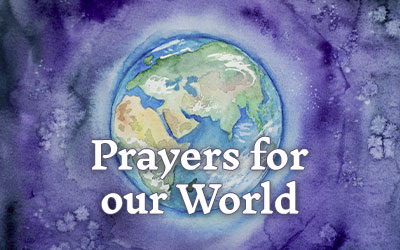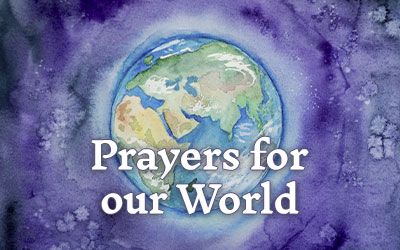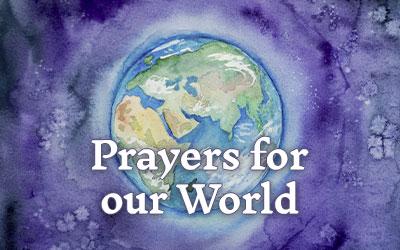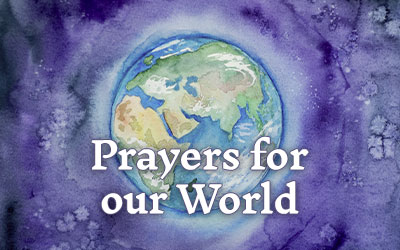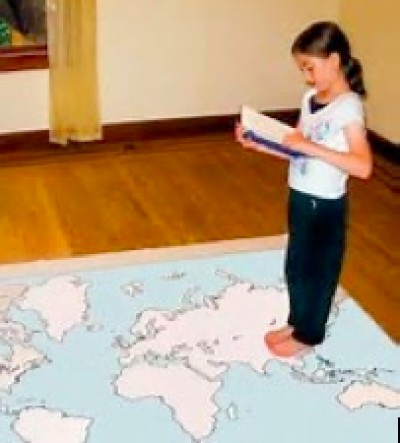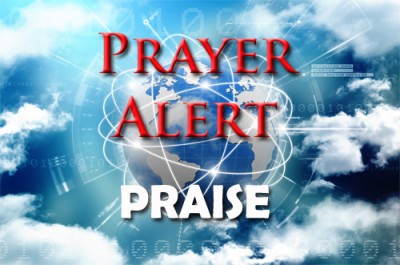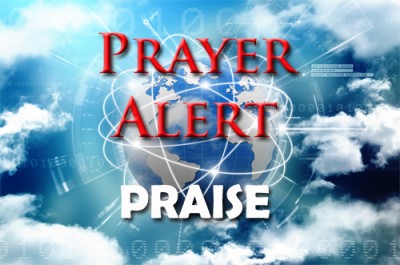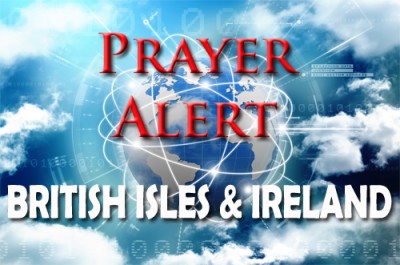This helpful article from The Weekly will help you to understand the situation in North Korea and how we ought to pray about this very threatening situation:
“Here are five facts you should know about North Korea, the world’s most repressive regime:
- North Korea was created after the Korean peninsula was divided in the aftermath of World War II. Following the surrender of Japanese forces in 1945, Gen. Douglas MacArthur, supreme commander for the Allied powers, issuedGeneral Order No. 1. In this order, the Japanese empire was required to surrender all portions of Korea north of 38 north latitude to the Soviet Union and all of Korea south of that marker to the United States (thearbitrary choice of the dividing line, which has affected international relations for more than 70 years, was “recommended by two tired colonels working late at night”). That December, the Soviets installed a communist guerrilla leader named Kim Il-sung as the chairman of the North Korean branch of the Korean Communist Party. When the DPRK was formed in September 1948, the Soviets recognized Kim Il-sung as the leader of Korea, both North and South. The autocratic Kim family—Kim Il-sung, his son Kim Jong-il, and grandson Kim Jong-un—have ruled the country every since.
- Soon after taking control of his country, Kim Il-sung developed such a strong personality cult that under the DPRK constitution he remains, even in death, the “eternal President of the Republic.” Within a year of being appointed premier, Kim Il-sung was referring to himself as “The Great Leader” and erecting statues of himself (the country now has more than 500 statues of him). His birthday is a national holiday known as the “Day of the Sun”, and in 1997 Kim Il-sung even created a new calendar that recalculated time from the year 1912, when he “came to earth from Heaven.”
- In 1972, after he surrendered his Soviet premiership and became President of North Korea, Kim Il-sung instituted the ideology known asJuche, a form of hyper-nationalistic self-reliance. As theDPRK explains, “The Juche idea means, in a nutshell, that the masters of the revolution and construction are the masses of the people and that they are also the motive force of the revolution and construction. The Juche idea is based on the philosophical principle that man is the master of everything and decides everything.” Writing in the Stanford Journal of East Asian Affairs, Grace Lee explains how this official autarkic state ideology is used to keep the North Korean population under control:
The Kim Il Sung regime instructed the North Korean people in the juche ideology using an analogy drawn from human anatomy. The Great Leader is the brain that makes decisions and issues orders, the Party is the nervous system that channels information, and the people are the bone and muscle that physically execute the orders. This belief system, inculcated in North Koreans since early childhood, made them docile and loyal to Kim Il Sung even in the face of famines and energy crises that have devastated the country.
- Knowledge of the outside world is limited for most North Korean citizens. All legal televisions aretuned to state-controlled domestic programming, and outside of a closed domestic network, there is no internet access. The state maintains a network of informants who monitor and report to the authorities fellow citizens they suspect of criminal or subversive behavior,USA Today notes, and unauthorized access to non-state radio or TV broadcasts is severely punished.
- Religious freedom is nonexistent in the country. The North Korean regime considers Christianity the biggest threat,as the USCIRF says, because it associates that faith with the West, particularly the United States. The North Korean government relentlessly persecutes and punishes religious believers through arrest, torture, imprisonment, and sometimes execution. Once Christians are imprisoned, they are typically sent to political prison camps where they are “treated with extraordinary cruelty.” According to the U.S. State Department, tens of thousands of Christians are in political prison and facing hard labor or execution because of their faith.
- Kim Jong-un’s regime is intent on developing an intercontinental ballistic missile that can strike the U.S. with nuclear warheads. He believes this will help him reach his main strategic goal, whichthe Pentagon identifiesas ensuring “Kim family rule in perpetuity.” The Pentagon also notes that the overarching national security objectives of Kim Jong-un have remained largely consistent: international recognition as a nuclear armed state; maintenance of a viable deterrent capability; the simultaneous development of its economy and nuclear weapons program (i.e., the “byungjin” line); reinforcement of its military-first approach to domestic and foreign affairs (“songun”); tight control over communications, borders, movement, and trade; and reunification of Korea under North Korea’s control.” The Defense Department says North Korea uses reunification with South Korea as a key component of its national identity narrative to validate its strategy and policies, and to justify sacrifices demanded of the populace.”
From: "The Weekly" <This email address is being protected from spambots. You need JavaScript enabled to view it.>
Date: Aug 11, 2017
Please watch and pray over the news from the Korean peninsula. This is the most threatening and dangerous situation the world faces right now and it looks to be worsening. Pray that the North Koreans will back down from their provocative actions and that Kim Jong Un will either change course or be removed by his own government or by Chinese intervention. Pray that a military confrontation that could take the lives of hundreds of thousands or even millions would be averted. Ask that God would give special wisdom and restraint to President Trump, President Xi Jinping of China, President Moon Jae-in of South Korea as well as all other leaders involved in the current crisis that a peaceful solution can be found to ending North Korea’s nuclear threats and weapons program
One expert who participated in the North American Prayer Summit affirmed that “the most dangerous threat to North America and Europe is Islam”. Muslims, he said, are training millions to come into every nation around the world. Their strategy is especially to infiltrate Europe and North America and then later take Israel. They have told him they are “way ahead of schedule”.
He listed ten elements of their strategy to subvert and eventually conquer the non-Muslim world through their multi-faceted jihad:
1 Population growth- marry and have as many kids as possible.
They will then press for the rule of sharia law when they get to 5% of a nation’s population.
2 Lying/Deceit- this is not wrong in Islam and their god Allah encourages it if it advances the jihad.
3 Education- textbooks in the USA are being bankrolled by Saudi Arabia and Iran- K through 12. Islam is being taught and Christianity is being left out. Some children are being made to repeat Islamic prayers in Florida.
4 Military- get Muslims into the armed services to be ready to mount attacks such as happened at Fort Hood in the USA where a Muslim soldier massacred other soldiers.
5 Media- Hollywood and news- you can’t say anything against Islam since they control major news channels and now are going after Fox News as well.
6 Business- some banks are being taken over and they are sending people to infiltrate.
7 Government- Muslims have been in the White House since Obama’s time there. Al Qaeda told this presenter: “We will have people in the U.S. government.”
8 Church- the final battle will be with Islam. “We will bring the Church down and turn churches into mosques.” Attacks on churches are occurring and some Christian organizations are being labeled as “hate groups” by Muslim controlled or funded news and advocacy groups.
9 Family- destroy families. Working through the homosexual agenda- anything to bring down infidels.
10 Jihad- spiritual war. If a Muslim kills an infidel, he will go to heaven and take his relatives with him. Muslim training centers, mosques, etc. have proliferated in the West.
Our participating expert concluded that “Islam is a major giant that will crush North America unless we use the authority God has given us.” He urged us to pray with Christ’s delegated authority and unity for the overthrow of their plans and that His people will reach out with the Gospel to win them! As we engage, He will give His angels charge over us (Ps 91:11)
Let’s pray that the Church will wake up and engage in wise and loving outreach to the Muslims in our midst. We have a terrific opportunity to reach them now that they are living among us. Let’s begin to identify and pray for them, then reach out with the love of Jesus Christ so they may be saved. In various parts of the world, hundreds of thousands of Muslims have been coming to Christ so we should be hopeful about winning them. Islam is an empty, oppressive and false religion that has nothing to offer those trapped in its domain. May they experience the salvation and abundant life that only comes through Jesus Christ!
(A presentation given at the North American Prayer Summit, August 21-24, St. John’s, Newfoundland, Canada)
The nature of Mexico’s problems, such as narco-trafficking, worship of dead, etc. go back to its idolatrous and occult roots. At Tepeyac, near Mexico City, sacrifices were made for centuries to Tonantzin, the Aztec serpent goddess who some think continues to be worshipped as the Virgin of Guadalupe since that is where the apparition appeared in 1531. Dec 12 celebrates the birth of this goddess and it is now the patroness of the nation.
Some also think that it was the mass human sacrifice and idolatry in the 15th century and 16th centuries that brought about the invasion of the Spanish conqueror, Hernan Cortez, and through that, God’s judgement on the murderous Aztec civilization. Half the population of that area was rapidly eliminated through disease and over time 97% died off. The current problems they have in Mexico today could be the result of these events. Pray for liberation of the Mexican people from the idolatrous Virgin of Guadalupe cult that has captured "the majority of the population and government officials. It has been said that the flip side" of this cult is the worship of Santa Muerte (Saint Death) that millions of additional Mexicans and increasing numbers in the USA pay obeisance to.
Now there is rampant corruption, drug addiction, youth suicide, vandalism, as well as child abuse, and even infanticide to keep children from such a life of suffering. Nevertheless, there are some hopeful developments such as the governor of Chihuahua who has decided to fight corruption. Pray for those Christian leaders who are working with him. May this become an open door to change the atmosphere and culture of the state.
During October in Michoacan, the “soul of Mexico” where the constitution was written, Pastor Martha Valdoviezo is going to the center of city with other pastors to pray for three days day and nights- a time of repentance for the sin and pain of Morelia. Pray for His strong anointing on her and the other ministry leaders- that God will unite and give them clarity for the transformation of their city and state.
Mexico City is surrounded by three states (8.5 million population but with the surrounding area included there are 24 million living in that area). The mayor opened up to Scientology recently and gave them a permit to locate a central office for Latin America there. They want to build 10 centers now. Pray that this decision will be reversed and that the false teachings of Scientology will be rejected by the government and the people.
In 1976, the Santa Muerte cult began in Mexico City. It is still growing and going after influential people. Pray with His authority and faith for the overthow of these and other false cults and that the Mexican people will serve the one and only Lord.
Mexico’s future economic prospects look hopeful due to the number of youth and children in the population and a good growth curve. Conversely, the USA and Canada may face a future economic downturn since population growth curve is not as good. Pray for the health and growth of the Mexican economy and that the big hindrance of corruption will be dealt with effectively.
The Church needs to have the opportunity to influence Mexico’s children for the Kingdom of God. Pray for real freedom from government control for Christian schools to give children and youth the knowledge of the Lord.
Mexico’s national election will be held next year. Pray that a man or woman of God will be able to run and win the election. Lopez Obrador, the socialist, currently has lots of support. Pray that he will not get in because his socialist policies would destroy the nation.
A new movement of prayer has arisen in the country that is connecting the Body of Christ in new ways and has lots of youth involved. Pray for such efforts to prosper in the land and for the real unity of the prayer movement and the leaders of its various streams.
Pray for the current NAFTA renegotiations- that the USA will undergird Mexico and that each nation will benefit.
Presented by one of the NAPS participants who comes from Mexico City
Approximately 90 leaders of prayer ministries and networks from Mexico, the USA and Canada met in beautiful Newfoundland and enjoyed deep times of prayer and sharing in the Lord as well as a lot of fun together! It was a time of rebuilding and strengthening our relationships and the connections between our national prayer movements as well as praying for some of the current issues that affect our continent.
From the very beginning, as we let “God be God and the Body be the Body”, we sensed that because of Newfoundland’s history there is a portal or gate (both vertical and horizontal) through which the Holy Spirit wants to flow into the rest of North America. We prayed a number of times about this, including on Signal Hill overlooking the city: “Welcome Holy Spirit, come! Welcome into North America. Launch a new Great Awakening!”
We also reaffirmed our unity in the Spirit that even transcends our national cultures and boundaries as members of His “eternal family”. One participant saw our national delegations as acrobats, standing on each other’s shoulders, pulling one another up, so that each nation finds its deeper destiny as part of a whole, integrated North America.
One prayer leader shared his dream of leaders in celebration, full of victory and joy. There was nothing but victory as if they had just won the Super Bowl. All were receiving gold rings. The global prayer movement is now in prime time, establishing its new authority as God’s sons and daughters to exercise governmental authority. “I am looking to position my people from Heaven’s perspective.” We should not react to things around us, but since He is the Captain of this team, we need to huddle around Him and then execute His plans. Sure victory will result. This is the season to release victory throughout the world.
We prayed for all three nations and for the continent as a whole, especially that the current NAFTA renegotiations to benefit all three nations. It needs to be stronger because of China! We were inspired by the presentation on how God has transformed Juarez, Mexico through a movement of united prayer and action led by Pastor Poncho Murguia.
An expert on Islam warned us to pray about the threats posed by the Islamic jihad to subvert and conquer North America, Europe and other currently non-Muslim areas of our world. (You can read his more detailed assessment of what their strategy is in another article in this Connections edition.)
Jerry Tuma, a “prophetic economist from Texas” spoke to us about how humanism has gotten a stronghold in our cultures and thinking about population growth, which is what God has always wanted. “Be fruitful and multiply” has never been rescinded. Paul Erlich’s Population Bomb, is full of assumptions and outright lies. Satan has used such thinking to steal human lives. More than 57 million US children have been aborted partly because of this erroneous scarcity mentality. Now an entitlement crisis is coming. Humanists have influenced our nations, but God is not lacking and there is no lack of resources. "The earth is the Lord’s and the fullness thereof." There are still enormous resources, and prosperity is associated with growing populations. Jerry told us we need to return to biblical economics. We need a transnational entity connecting the three nations. True collaboration is needed so let’s continue to be in prayer for the NAFTA renegotiation.
Some of the Common Issues Identified and Prayed About
We need to continue praying about these things in all three nations:
Identity – gender and ID in Christ
Unity in the church
Identity for the church – stewardship of the culture
Pornography
Homosexuality and redefinition of families
Churches’ apathy and lack of involvement
Lack of fear of the Lord
Lack of love to children
Adultery
Trafficking
Drug use
Family redefinition and sexual perversion
Public corruption
Homelessness
Lovelessness/lack of forgiveness
Lack of prayer in church leadership
Bloodguilt for indigenous people
Breakdown of family
Sexualization of society
Church is asleep
Church too much like the culture
Antisemitism
Focusing too much time on giant issues – not enough on Jesus
Broken covenants
Euthanasia
Growing legal persecution of churches/ministries
Homosexuality
Healing
Younger generations out of church
Lawlessness
Evangelism lacking
Lack of conflict management
Lack of fear of the Lord
Attack on Truth
Family issues
Abortion and Sanctity of life
Justice being twisted – inequities
Radical feminism
Freedom of speech eroding- political correctness affecting society e.g. Canadian law re. speaking out against Muslims, LGBT, etc.
Proliferation of drugs
Drugs/addictions rather than Christ
Church shirking duties – need to speak Truth to overcome deception
Have unity in church (John 17) – appeal to heaven to bring it
Tolerance in the church instead of Truth
Love of Father God – express Truth in love – to heal hearts
Death and violence
Greed
Idolatry
Witchcraft and occult connections and influence in government
Untimely death and culture of death
Lack of principled values
Distraction of social media – rebellion
Hidden agendas in schools – homosexuality, drugs, racism
Churches focused on inward vision rather than mission
Orphan spirit
False spirits in media and perversion of truth
Student debt
New media – standard of truth lacking
No discipleship in churches
Continental immigration vision
Freedom of speech
Religious liberty
Islamic deception
Economy
Wicked political leaders
Unity of the prayer movement
Prayer Needs for the USA:
Jason Hubbard- “One Church, One Day” initiative is building canopies of united sustainable prayer over communities. America Prays- every state will be covered in 24/7 40,000 local churches taking one day per month. Being launched during the Awaken the Dawn prayer effort on the DC Mall on October 7.
Jonathan Friz- “10 Days of Prayer” initiative. God wants to raise up movements of John 17 unity in our cities. City-wide churches, not separate kingdoms. 10 Days is a strategy to see it happen in our areas. Fasting, mourning and repentance. Jonathan had a vision of it going many places around the world and this year 34 cities in USA and Africa will take part. Please pray for the success of these and other new movements prayer led by younger leaders.
Jon Graf from the U.S. National Prayer Committee urged us to pray for the National Day of Prayer and its new leadership to become a movement, not just one day per year and that a national rhythm of prayer for the next Great Awakening will take shape.
2 Also that it will become a multi-generational, multi-denominational and multi-ethnic movement of prayer. Many of largest prayer ministries will merge into it or significantly partner.
3Pray for Unity and Wisdom as massive changes in the leadership of prayer movement happen. Every revival happened at times of political and social desperation.
Prayer needs for Canada:
1Progressivism creeping in regarding criticism of Muslims and LGBT.
2 Need prayer for French-English division.
3 First Nations see English colonization as a tragedy and do not celebrate Canada Day. Native kids were forced into residential schools. Still a deep rift needing healing.
4 Gateways in Vancouver and St. John’s, Newfoundland. Send a mighty move of God through these cities!
5 Quebec- wants to be loved and accepted as they are. Great revival as result!
6 Unity of the church and prayer movement. At the150th anniversary of Canada, July 1st- “WE ARE ONE!”
Mexico’s Prayer Needs (please see the separate article in this Connections attached below)
Australia
Jamie Pryor, a prayer leader from Australia, told us about the unity of the prayer movement in Australia. Their leaders are praying every week together and building familial relationships. They don’t try to become one organization but follow the same values in unity. They believe such an approach will help ready us for persecution. He asked that we pray for Australia that the plebiscite on homosexual marriage will be defeated.
Some suggested next steps for the North American Prayer Summit:
1 Lack of intergenerational transference- how to accomplish this? Sobriety re. lack of discipleship of the next generation. Children and youth- we have not included the kids thus far. Can we bring them into the NAPS? Bring one youth each next time? National prayer summit aimed at youth?
2 We need a strategy to take action. Make NAPS more diverse ethnically, generationally. Sacrifice time and resources to bring youth and other ethnic groups.
3 Building unity- how do we come together in unity as prayer movements and prayer leaders? We have different gifts and need to draw them together. We are family and need to stay in communication to pray what is from His heart. Use teleconferencing or Zoom. Respond to issues and intercede. Focus on the positive and what He is doing. An email prayer alert would help.
4 God wants to raise up a movement of prayer across the three nations. Come together once a year. Pray for each other’s nations. How about triplet prayer on the phone with a Canadian and Mexican once per week or month? We need each other.
5 It is time to rise up. Work and pray for a transnational identity. Incorporate worship and prayer together. Develop an app with categories for use so we can call each other and pray.
6 Promote a Kingdom mentality and get beyond our own groups. Use the Moravian model for intercessory unity. Prayer in cities and involve the pastors. As the Church operates in unity through love, the city can be transformed. Loving our cities.
7 Love the Muslims and speak truth in love to them. Pray for the children of Islamic world.
We sang out the prayer song “You Said”: Ask and you will receive…I’ll heal your land…your glory will fill the earth..the harvest is here,the Kingdom is near… ask and I will give the nations to you.. distant shores and the islands will see your light as it rises on us.” (Psalm 2:8) Pray that we in North America will play our part in praying for and reaching the still unreached peoples of the earth, that transcendent call of God known as the Great Commission.
This excellent video on NAPS by Eric Teitelman covers the NAPS prayer tour we took to pray for our continent from its easternmost point https://youtu.be/dHOY5FYgid0
Our vision as Jesus followers is way too small! Let’s be honest. We mainly focus on ourselves and our families, with all our problems and needs. We may at times pray for our own church, and if we are keeping up with the news and big-hearted enough, we may also remember to pray for our community and nation from time to time. However, the Lord’s vision and heart are for the whole world. Indeed, in and with the Messiah, He wants to give us the peoples of the earth as He promises in Psalm 2:8: “Ask of me and I will make the peoples your inheritance and the uttermost parts of the earth your possession.” What an expansive calling and possibility through prayer and mission flowing out of prayer!
This focus on the peoples reaffirmed centuries later in the Great Commission of Matthew 28:20 was also on Jesus’ lips on the cross. While torturously gasping for air, he recited Psalm 22. That psalm starts with the anguished cry “my God, my God, why have you forsaken me?” and concludes with the assurance that “all the ends of the earth will remember and turn to the Lord, and all the families of the nations will bow down before him.” (Psalm 22:1 and 27). This must have been in the Lord’s mind as He looked beyond His immediate suffering. In spite of His awful agony, He peered into the future, by faith seeing the peoples of the earth turning to Him one day.
PraThe Moravians grasped that same vision after the Spirit fell upon them at Herrnhut, Germany, in 1727. This impelled them to begin a 100-year plus 24/7 prayer chain to pray for the distant peoples, that they might have the opportunity to come into the relationship with Christ they themselves had discovered. The Moravian example should inspire us with what God can do with even a few who are committed to persevering, united prayer. Though only a couple hundred believers first began this 24/7 prayer chain, ultimately thousands over those years took part. And from that small village these intercessors sent out missionaries that impacted an estimated 5000 locations on earth. These were the first Protestant missionaries. It was also the Moravians and their example of prayer wedded to mission that deeply stirred the two Wesley brothers, John and Charles. So England underwent a great revival that also spread to the USA and around the world through a multiplication of prayer and mission efforts in the 18th and 19th centuries.
In May of this year, international prayer and mission leaders came together at Herrnhut, where 6000 of these faithful Moravian intercessors and missionaries are buried. During our time together, we were stirred by the fact that over 1500 of the remaining unreached ethno-linguistic people groups still have no known missionaries or exposure to the Gospel. This is probably because no one is praying for them specifically, which is the first step to reaching them. Praying to the Lord of the harvest is a supernatural partnership with the One who can raise up those who are specially called and gifted to go and share the Good News with them. Without such prayer, there is no effective or sustainable mission outreach.
It is unthinkable that on our watch these people groups would not have the opportunity to hear about Jesus Christ and to become part of His eternal family. Would you, therefore, please pray for the following?
- That churches and prayer groups in your nation and around the world will each adopt at least one UPG until they are reached with the Good News of the Gospel. The definition of “reachedness” is that there is an indigenous community of believers established who are capable of evangelizing the rest of their people group.
- Pray also for these important upcoming prayer and mission events to be used of the Lord to catalyze this adoption of the unreached for prayer and mission engagement:
- The Zero Gathering, Oct. 13-14, in the Dallas area, including the birthing of the Vision 2025 initiative to pray until every UPG has the Bible in their own language. 1600 participants are expected to gather with many others participating through live-streaming. Our focus will be on the 1671 Bibleless peoples that even by 2025 there might be zero peoples lacking access to Scripture.
- For the Finishing the Task initiative and gathering of 700-800 mission people, Dec. 5-7, in Mission Viejo, CA. It will be the first time a prayer track will be included.
- For the UPRISING youth national assemblies for prayer and mission happening around the world during the coming year, that the youth will be challenged to adopt and pray for UPGs, and then once again at the culminating global youth event in Indonesia in October 2018.
Please keep these upcoming efforts in your prayers that they will be powerfully used of the Lord to get every UP adopted and covered with ongoing intercession. To find out more about how you and your prayer group or church can adopt an unreached people group and for resources on praying for them, please visit Joshua Project www.joshuaproject.net. Prayer cards and profiles are available to download and use.
Thank you for your prayers. The Lord will surely use them in a supernatural way to bring about the reaching of those still waiting to hear of His love and truth.
John Robb
Chairman, International Prayer
Bravery as Texas floodwaters rise
01 Sep 2017Hundreds of thousands of people have been rescued as devastating floods continue to ravage Texas. Many people are refusing to allow it to crush their spirits. Instead, they are courageously choosing to join relief efforts. A Houston pastor took it upon himself to check vehicles stranded on what had been Texas State Highway 288. Although it was dangerous, he waded out to vehicles looking for people trapped inside. ‘He wanted to make sure those cars were empty’, said Brian Roberson, who witnessed the pastor’s bravery. ‘It was so powerful to see first-hand.’ Another man drove his jeep around roads looking for flood victims to save. Many other stories of bravery and the undefeatable human spirit are emerging, even as the floodwaters continue to rise. Good Samaritans are offering boats, water and food to those trapped in flooded homes. See:
Answered prayers: holiday hunger bill
01 Sep 2017In July, Prayer Alert readers prayed for an end to children going hungry in school holidays - see . On 31 August the media reported that a plan to stop holiday hunger for children has been welcomed by over a hundred MPs. The School Holidays (Meals and Activities) Bill was backed by MPs John Woodcock and Tim Farron and presented to parliament. The Bishops of Durham and Liverpool also supported the bill, which would require local authorities to ensure that free meals and fun activities are provided for youngsters who would otherwise go without during the holidays. Mr Woodcock said that foodbanks have grown in recent years and hunger is a real issue in parts of our communities, often due to government cuts and benefits sanctions.
